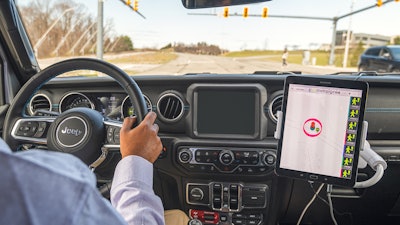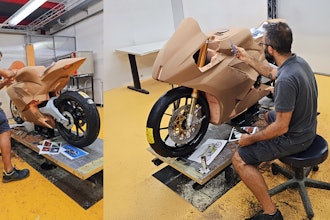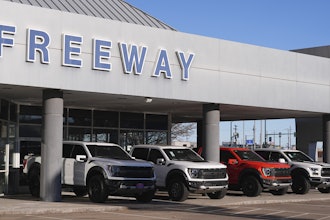
Stellantis participated in the 5G Automotive Association (5GAA) live trial of 5G cellular connected vehicle communication and multi-access edge computing (MEC) technology in Blacksburg, Virginia. The live trial of the new driver and pedestrian safety concept piloted new roaming technology for traffic safety.
“Making roads safer for drivers and pedestrians is the ultimate goal of developing these next generation technologies,” said Ned Curic, Stellantis Chief Technology Officer. “The Jeep Wrangler 4xe plug-in hybrid is the perfect vehicle for these live tests, equipped with vehicle-to-everything (V2X) technologies and driver safety alert. With 5GAA, we are working with industry leaders across the globe to help pave the way for autonomous technology to benefit our products and, ultimately, our customers.”
Stellantis participated in a similar test program in Turin, Italy, to evaluate 5G cellular technology and management of large volumes of data, including the sizing and configuration of computing capabilities inside the vehicle. High-speed wireless communication is a key element in enabling increased levels of vehicle autonomy as well as future connected services and mobility technologies.
The test gear installed on the Jeep Wrangler 4xe plug-in hybrid enables the vehicle to alert nearby infrastructure of its position to alert pedestrians and other vehicles, as well as receive emergency notifications from the cellular network.
The 5GAA connected car concept uses fixed, on-site cameras and sensors to collect detailed data that adds to what a vehicle can “see” using its on-board systems. With a high-speed 5G cellular connection and MEC, the system can quickly make decisions at the location where data is collected, an intersection for example, to communicate safety risks for pedestrians and approaching vehicles.
5GAA partners that participated in the Virginia program include Intel, Verizon, American Tower, CapGemini, Telus, Harman, Virginia Tech Transportation Institute and the Virginia Department of Transportation.






















